#Walter Rodney
Text
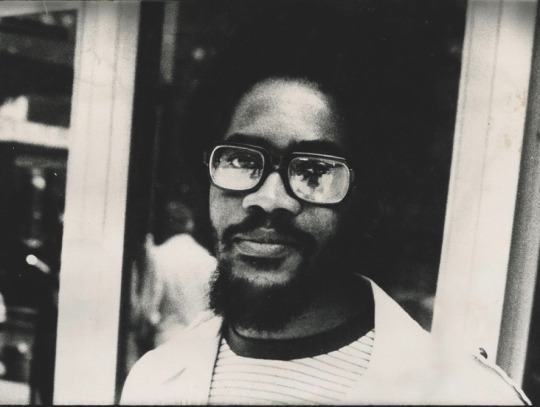
“It is enough to note the behavior of European capitalists from the epoch of slavery through colonialism, fascism, and genocidal wars in Asia and Africa. Such barbarism causes suspicion to attach to the use of the word “civilization” to describe Western Europe and North America.”
Walter Rodney
31 notes
·
View notes
Text
Like halfway through "how Europe underdeveloped Africa" cause I decided I'd read/listen to it after I had a strong base on knowledge on African history and just holy fuck is he right about nearly everything so far.
Having learned about how extensive African trade was prior to the 18th century and how heavily most African kingdoms shifted in the 16th it's very clear that what he points out in the way the slave trade and the need to aquire firearms grew the European economies while near completely emptying out African economies and how the hard shift to European import goods after Europe had grow through the use of African slave labor and monopoly of trade routes is still a largely still at play in the era of neocolonialism.
The way that Walter Rodney not just points out that this is true, but the depth to which he covers a variety of African kingdoms, their economies, and cultural practices puts even some college level courses to shame while also showcasing the exact ways in which some of these stronger or more expansive kingdoms like the Ashanti, oyo, borno, Kongo, and Benin kingdoms had explicitly tried everything to get guns through any other trade and how the Ashanti, merina, Ethiopian, Burundi Benin kingdoms sought our education and scholars to begin industrialization and the systematic way in which Europeans and Americans prevented that is just, well it's damming.
It's a continuing reminder how from the first stage of European expansion and control they had precisely zero good intentions for the peoples of Africa. That Europe saw Africa as nothing more than a way to grow itself, it's institutions and improve its economies by depriving Africa of labor, materials and freedom which is true to this day, most starkly in the Congo but true across the whole region.
But while the book shows the crimes of Europeans without sugar coating, it also doesn't glorify the African leaders and more importantly those that became collaborative with European despitism. It also does not abide by the word games the European powers like to play and goes in depth to the way Europeans had no actual interest in ending slavery, and that while invading the various kingdoms and communities to "end slavery" the created some of the most brutal slave conditions on this side of the globe, not just in Leopolds Congo but in French forced labor camps and British controlled regions, with the Portuguese being particularly up front about it.
Truly a shame that like most other black radicals Rodney was murdered so young. The rarity to which black radicals even get to 40 shows how desperately capitalist and white supremist try to prevent even the slightest push back from black voices. It also makes clear how much we all need to know this stuff, from debois's black reconstruction to nkrumah's neoimperialism these books give a great understanding of the past and the precise way in which we arrived to the current situation.
I pray that with the new scramble for Africa that is unfolding in front of our very faces, the genocides in the Congo, and Sudan, and the way in which these interlock with the genocide of Palestinians, that we all take the time to properly read and reflect so that we may properly organize and fight back for a fully free and sovereign Africa and Palestine and a world free from white supremacy.
#black liberation#colonization#politics#indigenous liberation#world of the oppressed#pan african#the colonized#How Europe underdeveloped Africa#walter rodney
623 notes
·
View notes
Text
“Really, what does it mean to profess that one has taken up a Marxist world view? It only suggests that instead of using this tool, I prefer to use this other tool; instead of having this allegiance, I prefer to have this other allegiance; instead of serving one class, I wish to serve another class, which is the working-class interest of all communities. But having said that, one still has to go ahead, certainly as an academic, and as an intellectual, to make the analysis on the basis of utilizing Marxist methodology, and on the basis of being intellectually accountable to the working people as distinct from being intellectually accountable to the bourgeoisie.”
-- Walter Rodney
271 notes
·
View notes
Text

By what standard of morality can the violence used by a slave to break his chains be considered the same as the violence of a slave master?
— Walter Rodney
64 notes
·
View notes
Text
"The winning of constitutional independence in any given African territory has to be correlated with winning of independence everywhere else on the continent and in Asia, so as to determine to what extent the so-called peaceful handover of power was really peaceful and was due to the goodness of the colonizers, and to what extent it was an option forced on them by examples of violence in particular colonies and by the threat of violence implicit in any nationalist movement which had shaped the people into a single resolute force. It is, for example, palpably obvious that the French learned from defeats in Vietnam that they should quit the whole of Indochina 'peacefully', rather than perish at other Dien Bien-Phus. The French repeated their high-handed actions in Africa and found that the national war of liberation threatened to reduce the French 100-franc note to a piece of worthless paper, and had already bequeathed the National Assembly in Paris with a succession of jack-in-the-box premiers. There was clearly a connection with the unsuccessful French wars of repression in Algeria and the haste with which they tried to establish acceptable African governments in West Africa.
As for the British, Malaya haunted them in Asia and the example of Kenya gave them diarrhoea in Africa. True, they did suppress the Mau Mau land and freedom army, but at what cost! Imperialism is not imperialism if it costs more to suppress the exploited than the imperialists receive in surplus. The British knew that it was wise to proceed with African independence rather than court more Mau Mau. Even in far-off British Guiana, the popular movement of the 1950s could exert some leverage on the British by threatening them with Mau Mau.
India is often given as the classic example of non-violent transfer of power from the imperial power to the indigenous nationalist forces. But it should be remembered that India had a powerful current of mutinous soldiers and other political traditions opposed to the non-violence of Gandhi. The British retreated as much from the threat of millions of Indians lying peacefully on the roads and railways as from the possibility that they might get up and strike back, given the example of those nationalists who were attacking British life and property before and during the Second World War."
Walter Rodney, The British Colonialist School of African Historiography and the Question of African Independence
31 notes
·
View notes
Text

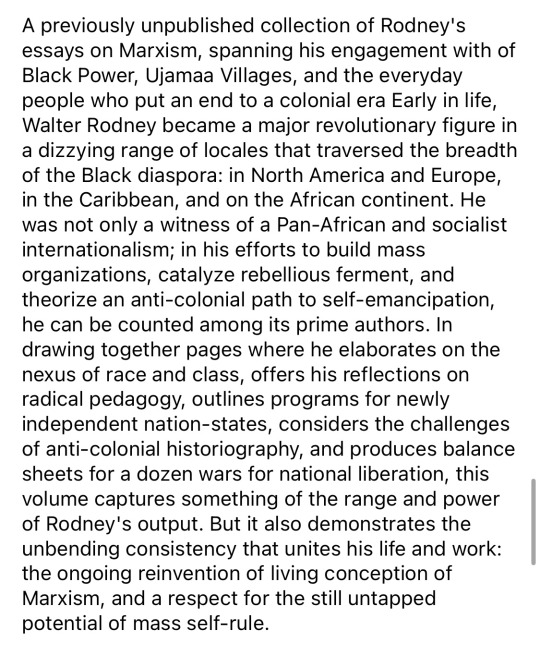
𝑹𝑬𝑸𝑼𝑰𝑹𝑬𝑫 𝑹𝑬𝑨𝑫𝑰𝑵𝑮 - 𝑳𝑰𝑵𝑲 𝑻𝑶 𝑹𝑬𝑨𝑫
15 notes
·
View notes
Text
Decolonial Marxism - Walter Rodney
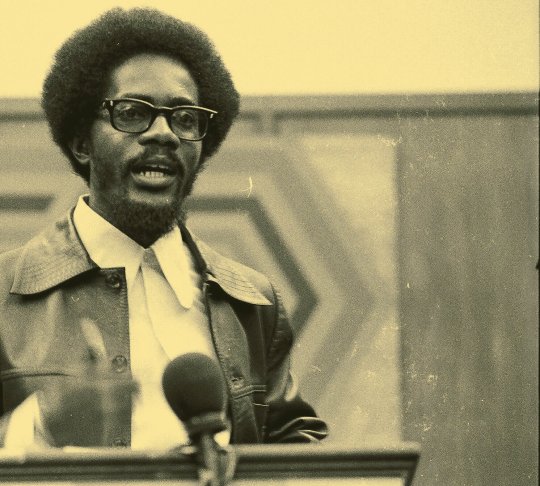
Hello friends!
Today's recommendation continues the focus on revolutionary thinking from important figures in the Global South with a compendium of wonderful essays that are incredibly relevant today: "Decolonial Marxism" by Walter Rodney.
Walter Rodney was am inimitable historian, educator, and political activist who forwarded Pan-Africanist and Marxist thinking and action since the 1960's. His groundbreaking historiography on Guyana and research in Tanzania produced works like "How Europe Underdeveloped Africa," his magnum opus that forwarded a rigorous analysis on the ways colonialism ransacked the African continent as a piece of postcolonial literature. He also became actively involved in the Black Power movement, fostering alliances with prominent figures like Angela Davis and Kwame Ture. His tireless efforts to unite oppressed peoples around the globe earned him admiration and support from many, alongside angering institutions like the US-backed Guyanese government which were likely sources of his assassination in 1980.
"Decolonial Marxism" delves into the intersection between Marxism and the postcolonial struggles faced by former colonies around the world, challenging the view that these theories are ultimately Eurocentric. In this collection of posthumous essays, Rodney evaluates how Marxism can be harnessed to address the structural issues perpetuated by colonialism and foster decolonization, while also criticizing actually Eurocentric views present on this revolutionary tradition.
Incredible strengths of this view lie in Rodney's analysis of how class society is intrinsically connected to the legacy of slavery and colonialism alongside a study of African history on its own terms as a Marxist, alongside his thinking of what a Pan-Africanist Marxist revolutionary struggle can look like. He takes inspiration from Tanzania's Ujamaa to flesh some of these investigations out, which I highly recommend.
"Decolonial Marxism" goes beyond theory; it provides historical examples and case studies that demonstrate the practical implications of anti-colonial Marxist thought, which makes it a must read in my book.
#book blog#book review#bookblr#decolonisation#marxism#anti colonialism#walter rodney#pan africanism#global south
13 notes
·
View notes
Quote
If we want to stand any chance at resisting our period’s great ills, such as rampant inequality, ecological devastation, and an escalating cost of living (which is generating social anxiety and compounding the retreat into identity-based identification and essentialism), we need to re-popularize frameworks that accurately name which groups are responsible for structuring society the way it is now.
We need to make class the main fault line of social polarization. To do this presents the greatest threat to the capitalist system’s stability because it unmasks what is otherwise obscured: the system is of our own making, and we have the agency to undo it. This is what they don’t want you to know.
William Shoki in Africa Is a Country. This is what they don’t want you to know
A new film on the life of Walter Rodney gives a glimpse of his radical solidarity politics and centers on his family, who struggled and suffered with him.
Walter Rodney: What They Don’t Want You to Know
65 notes
·
View notes
Text
By what standard of morality can the violence used by a slave to break his chains be considered the same as the violence of a slave master?
— Walter Rodney
8 notes
·
View notes
Quote
The African continent reveals very fully the workings of the law of uneven development of societies. There are marked contrasts between the Ethiopian empire and the hunting groups of pygmies in the Congo forest or between the empires of the Western Sudan and the Khoisan hunter-gatherers of the Kalahari Desert. Indeed, there were striking contrasts within any given geographical area. The Ethiopian empire embraced literate feudal Amharic noblemen as well as simple Kaffa cultivators and Galla pastoralists. The empires of the Western Sudan had sophisticated, educated Mandinga townsmen, small communities of Bozo fishermen, and nomadic Fulani herdsmen. Even among clans and lineages that appear roughly similar, there were considerable differences.
Walter Rodney, How Europe Underdeveloped Africa
103 notes
·
View notes
Text
I think a fundamental thing presented by Walter Rodney is that Africa did not have money invested into, even for the build up of security forces that very literally enslaved them, that money that was used to pay those forces were literally paid by the taxes generated by very people that were being oppressed. Every mile of rail and road was funded by the oppression itself.
Europes singlural investment was just the arms and a portion of the forces that was used to initially colonize Africa. European capitalist were very happy to bring that up until they started getting push back.
Why do I bring this up today, how does this relate? Well look at the cop city build up, what's the purpose of that and why are companies and banks across the US investing in that? It's for extreme oppression that will pay super profits for them. It's to engage in literal urban warfare across the US, most likely to boost the slave raiding process that is our policing system which grants billions of dollars to the accounts of these businesses through prison slave labor.
#walter rodney#black liberation#politics#colonization#world of the oppressed#pan african#the colonized
8 notes
·
View notes
Text
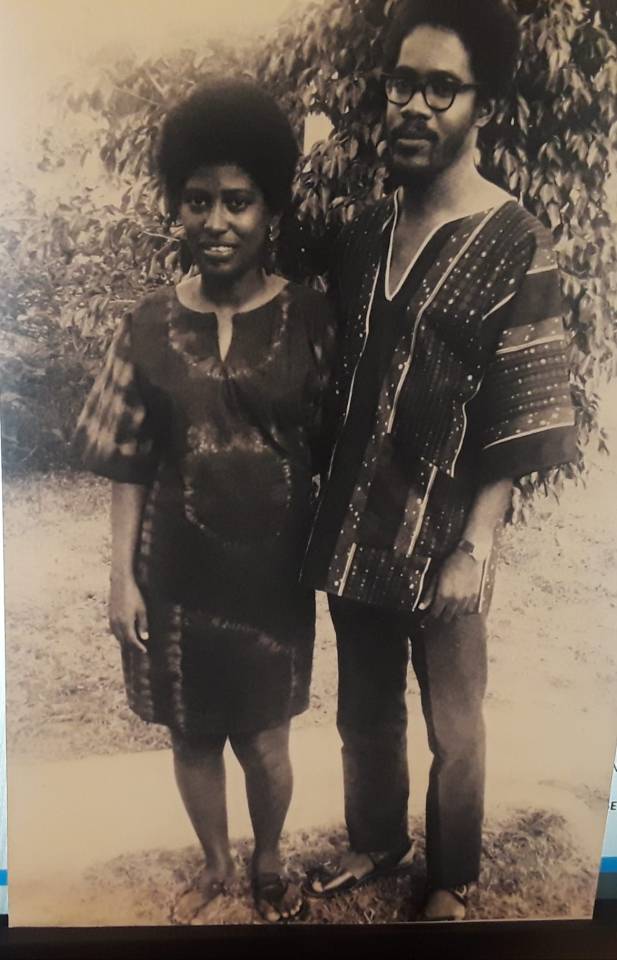
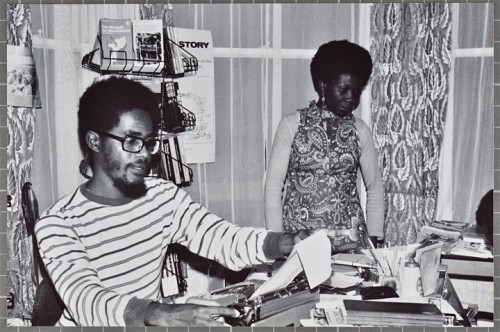
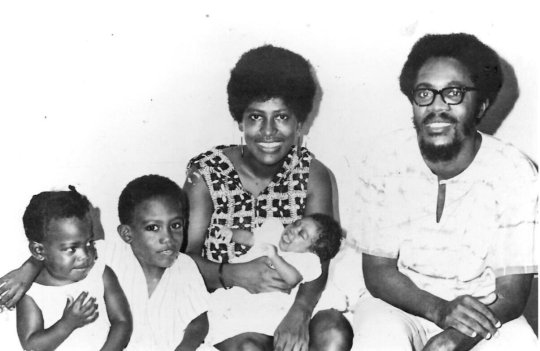
64 notes
·
View notes
Text

By what standard of morality can the violence used by a slave to break his chains be considered the same as the violence of a slave master?
— Walter Rodney
53 notes
·
View notes
Text

“Capitalism has created its own irrationalities such as a vicious white racism, the tremendous waste associated with advertising, and the irrationality of incredible poverty in the midst of wealth and wastage even inside the biggest capitalist economies, such as that of the United States of America.”
Remembering the absolute legend, revolutionary theorist and organizer Walter Anthony Rodney, born on this day in 1942 in Georgetown, Guyana.
16 notes
·
View notes
Text
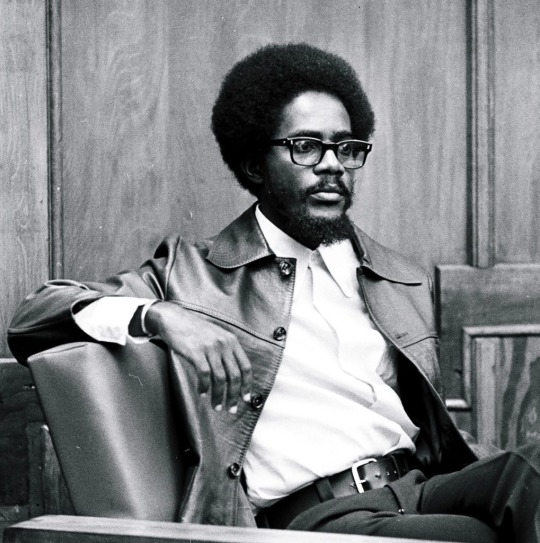
On this day in 1980, Guyanese revolutionary theorist and organizer Walter Rodney was assassinated. He was only 38.
19 notes
·
View notes
Quote
Pan-African theory in general, and the work of Rodney in particular, should be reconsidered as central to the development and genealogical construction of theories and knowledge upon which we build in the current moment. We now have many ways to reach the important issue of the fraught relationship between knowledge and power, and we have great work left to do to create knowledge that is liberatory in relation to power. Rodney’s work is one of our greatest models in this urgent task.
Jesse Benjamin in Africa Is a Country. Groundings with Walter Rodney
AN INTERVIEW WITH
Monique Bedasse
Erin MacLeod
Nijah Cunningham
Matthew J. Smith
Jesse Benjamin
On the 50th anniversary [2019] of Walter Rodney's Groundings with My Brothers, a small group of scholars on the impacts of Rodney on their intellectual development and political commitments.
The Groundings With My Brothers
6 notes
·
View notes